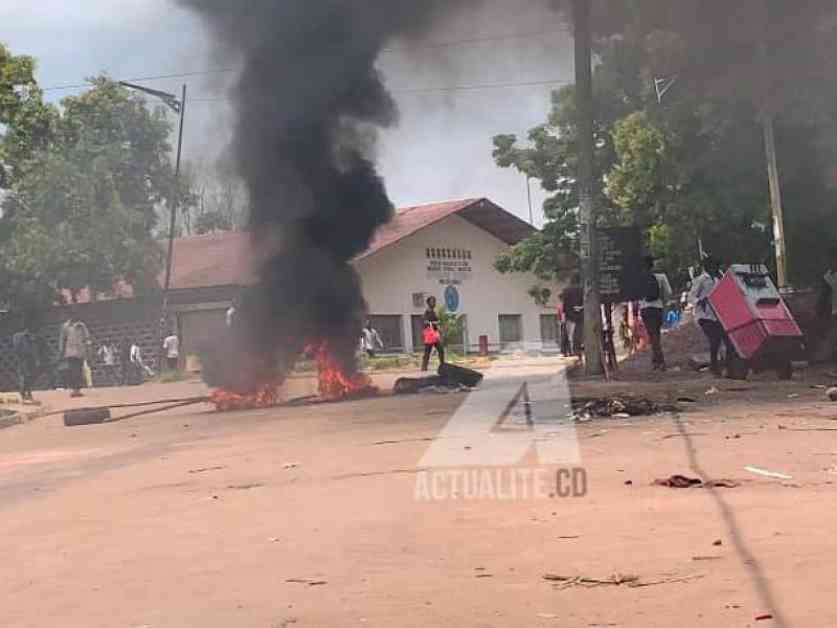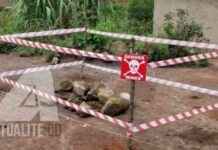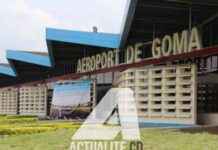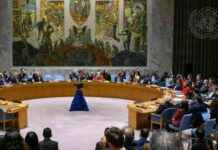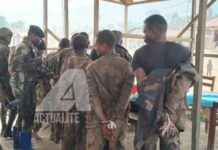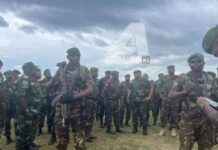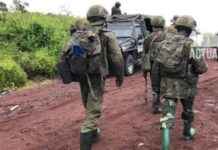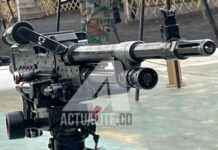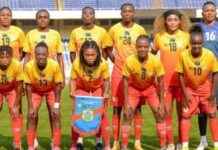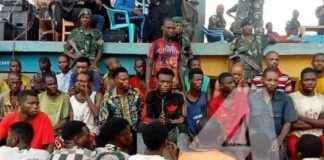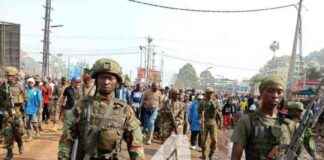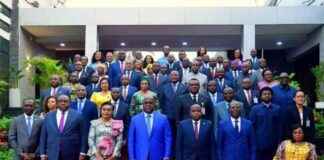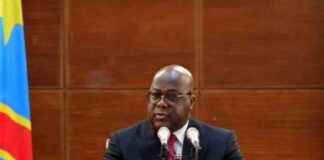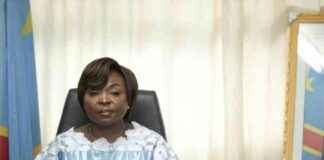On Thursday, January 30th, a group of students from the University of Kinshasa gathered in the morning to protest against Rwandan aggression through its M23 proxies in the eastern part of the Democratic Republic of Congo. As momentum grows across the country and among various segments of the population, the students were not silent.
The day of Thursday, January 30th had already been declared a day without classes to focus on supporting the Armed Forces of the DRC in protecting the country’s territorial integrity. However, at Unikin, the mobilization was slow to take off. It was around 11 am when the first groups of students left the university campus, heading towards Ngaba Roundabout via University Avenue. The mobilization was initially supervised by university guards, with students chanting anti-Rwandan and anti-Western slogans, calling for self-reliance. Some students were even willing to join the army for this cause.
“We will undergo military training, which is free. If we have to go to Rwanda and kill, we will do it,” expressed one angry student. Another added, “We are grateful to the FARDC and everything they do for us. We promise them that they are not alone, we will mobilize here, and if we need to contribute funds, we will. We stand behind them.” Other groups of students followed the initial group descending towards Ngaba Roundabout, but they did not reach their destination. The police dispersed the protesters, and shots were heard. Police units were visible around the university road until around 1 pm to discourage protesters and allow normal life to resume.
From Intendance stop to Ngaba Roundabout, traffic was light in the late morning. Small businesses were closed, and students from nearby schools did not have classes due to the announcements of these protests. This march followed a mobilization against the deteriorating situation in Goma. On Tuesday, January 28th, several other demonstrators gathered in front of various embassies to demand stronger international involvement in pacifying eastern DRC. They denounced the presence of M23 fighters and Rwandan forces in Goma, calling for their immediate withdrawal. Tires were burned, and hostile slogans towards Western powers were chanted.
Student Outrage and Solidarity
The students at the University of Kinshasa expressed their outrage and solidarity with the Armed Forces of the DRC through their protest against Rwandan aggression. The emotional intensity of their statements and actions reflected a deep-rooted sense of patriotism and determination to defend their country’s sovereignty. Despite facing police crackdowns, their willingness to sacrifice and support the military effort resonated with many observers.
Expert Quote: “The students’ response to the threat posed by the M23 and Rwandan forces showcases a remarkable sense of civic duty and unity in the face of external aggression,” remarked Professor Jean-Pierre Nkutu, a political analyst specializing in regional conflicts.
Challenges and Consequences
The mobilization of students and other demonstrators against the backdrop of escalating tensions in eastern DRC highlighted the challenges faced by the country in maintaining stability and territorial integrity. The clashes with police and disruptions to daily life underscored the potential consequences of such protests on societal harmony and economic activities.
As the situation continues to evolve, the government and international community will need to navigate complex political dynamics and security concerns to address the underlying issues fueling the conflict in the region.
In conclusion, the student protest at the University of Kinshasa against Rwandan aggression and in support of the Armed Forces of the DRC exemplifies the deep-seated patriotism and resilience of the Congolese people in the face of external threats. The events of January 30th serve as a poignant reminder of the challenges and complexities inherent in navigating regional conflicts and upholding national sovereignty. The voices of the students resonate not only within the borders of the DRC but also reverberate across the international community, calling for attention to the plight of the Congolese people.
